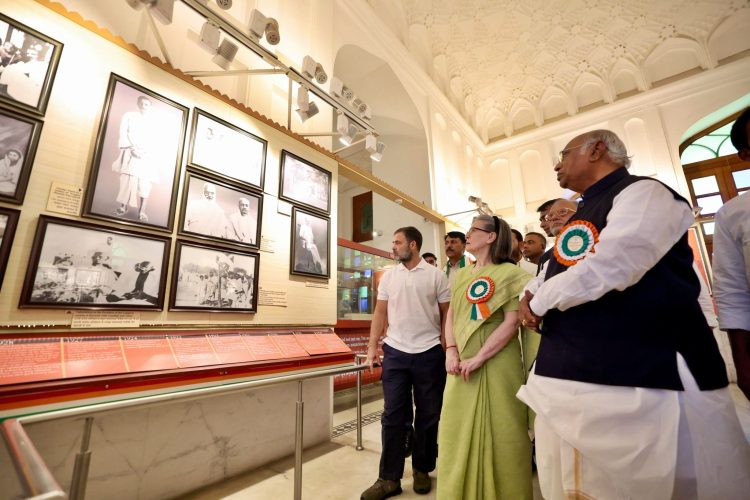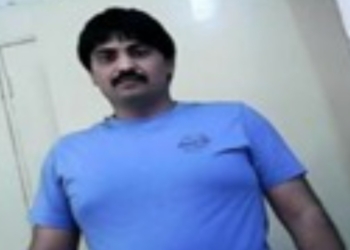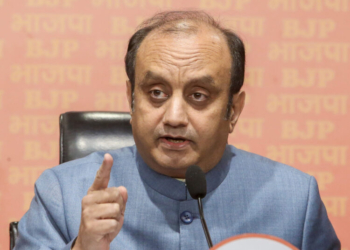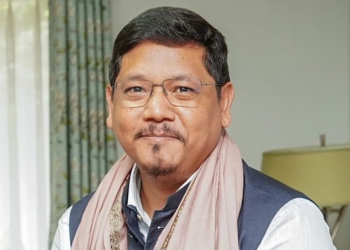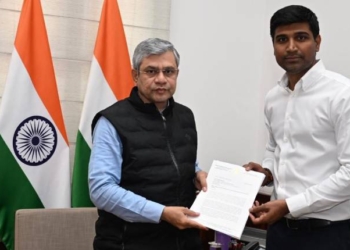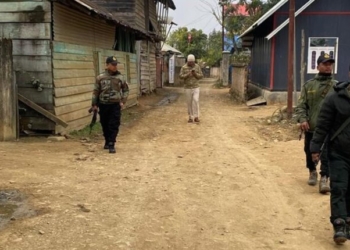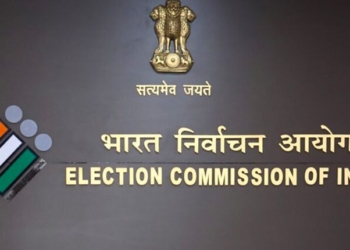Ahmedabad: As Congress returned to Gujarat for its All India Congress Committee (AICC) convention after a long hiatus of 64 years, the question looms: what has changed for the Grand Old Party between Bhavnagar 1961 and Ahmedabad 2025? The contrast couldn’t be starker because when the AICC met in Bhavnagar in 1961, Congress was the unquestioned political force across India.
Jawaharlal Nehru was the Prime Minister, guiding a young nation through economic planning, non-alignment diplomacy, and industrialisation. The Congress at the time was not just a political party — it was a movement that had carried India through the freedom struggle and into nation-building. In that Bhavnagar session, Nehru spoke about the need for unity in diversity and warned against complacency. “Our challenges are not over,” he had said. “We have won freedom, but now we must win bread, education, and dignity for every Indian.” Those words echoed the confidence of a party in control but aware of its responsibilities.
Fast forward to 2025, and the party gathers in Ahmedabad in an entirely different political landscape. The BJP has ruled Gujarat uninterrupted since 1995, and since the rise of Narendra Modi, the Congress has been pushed to the fringes. Once the dominant voice of Gujarati politics, the Congress today is struggling for relevance, having suffered back-to-back electoral defeats at both the state and local levels.
In the 2022 Gujarat Assembly elections, the party registered its worst-ever performance, winning only 17 of 182 seats and securing less than 27 per cent of the vote share. This followed a near-collapse in the 2021 municipal elections, where the Aam Aadmi Party (AAP) outpaced Congress in urban centres like Surat. The writing has been on the wall for some time: unless the party reinvents itself, its future in Gujarat — and perhaps nationally — is under serious threat.
The Ahmedabad convention, which includes a meeting of the Central Working Committee (CWC) and a full AICC session at the Sabarmati Riverfront, is therefore not just symbolic — it is existential. Party president Mallikarjun Kharge, Leader of Opposition in the Lok Sabha Rahul Gandhi, and Congress Parliamentary Party Chairperson Sonia Gandhi are present, while Priyanka Gandhi VaAdra is expected to join the AICC session on April 9.
Rahul Gandhi has consistently framed Gujarat not merely as a political battleground but as the soul of India’s democratic and secular legacy. During the 2022 Assembly election campaign, he remarked, “Gujarat is not just a state; it’s an idea — of justice, enterprise, and harmony. The BJP has hijacked that idea with fear and cronyism. But we are here to bring back the real spirit of Gujarat.” This vision has been at the core of the Congress party’s narrative in the state, which seeks to challenge the BJP’s decades-long dominance.
At a press conference in Ahmedabad the same year, Rahul Gandhi emphasized the Congress’s ground-up approach, stating, “We are not here to make promises, we are here to listen. The Congress wants to rebuild Gujarat — not from the top down, but from the ground up, with farmers, workers, women and youth at the centre.” This was part of a larger strategy to reconnect with the grassroots and regain the party’s eroded support base in the state. Gandhi also invoked Gujarat’s historical importance to the Congress and the country at large. “This is the land of Mahatma Gandhi and Sardar Patel. Both stood for unity and truth. We come to Gujarat not just to fight an election but to fight for their legacy,” he said during the Gujarat leg of the Bharat Jodo Yatra in 2022.
His statements underline the symbolic weight Gujarat carries in the Congress’ national imagination. Despite setbacks in recent elections, Gandhi has remained resolute about the party’s revival in the state. “It may take time, but we will revive the Congress in Gujarat. Our fight is not just political, it is a fight for the soul of this state,” he asserted during the Navsarjan Yatra in 2017. These remarks continue to echo as the party gathers in Ahmedabad in 2025 for its first AICC convention in the state in over six decades, signalling not just a strategic pivot but an emotional and ideological recommitment.
Back in 1961, the Bhavnagar convention also focused on economic reforms, food security, and Panchayati Raj — a vision articulated by Nehru and later carried forward by Indira Gandhi.
Indira Gandhi, in fact, had played a key role in the organisational restructuring of the party during the 1960s, setting the stage for her eventual leadership. Today’s Congress faces a different challenge: how to remain relevant in an era of hyper-nationalism, digital campaigns, and personality-driven politics.
The Gujarat Congress has acknowledged these challenges.
According to insiders, the party faced multiple hurdles even in organising the convention. Permissions were reportedly denied at two venues in Ahmedabad. Nevertheless, the party persisted and secured the Sardar Vallabhbhai Patel National Memorial and the Sabarmati Riverfront for the sessions. Around 3,000 delegates from across the country — including Chief Ministers of Congress-ruled states, state presidents, CWC members, and special invitees — are attending the convention.
More than 1,700 leaders are staying in 35 hotels across Ahmedabad. The National Students’ Union of India (NSUI) is playing host, assisting with logistics and hospitality. Gujarat Congress leaders are hopeful that this two-day gathering will inject renewed energy into the party’s cadre. “We’ve seen difficult times, no doubt. But we also have a legacy of struggle and transformation. This convention is a chance to reconnect with that spirit,” said a senior state Congress leader, speaking on the condition of anonymity.
(IANS)




